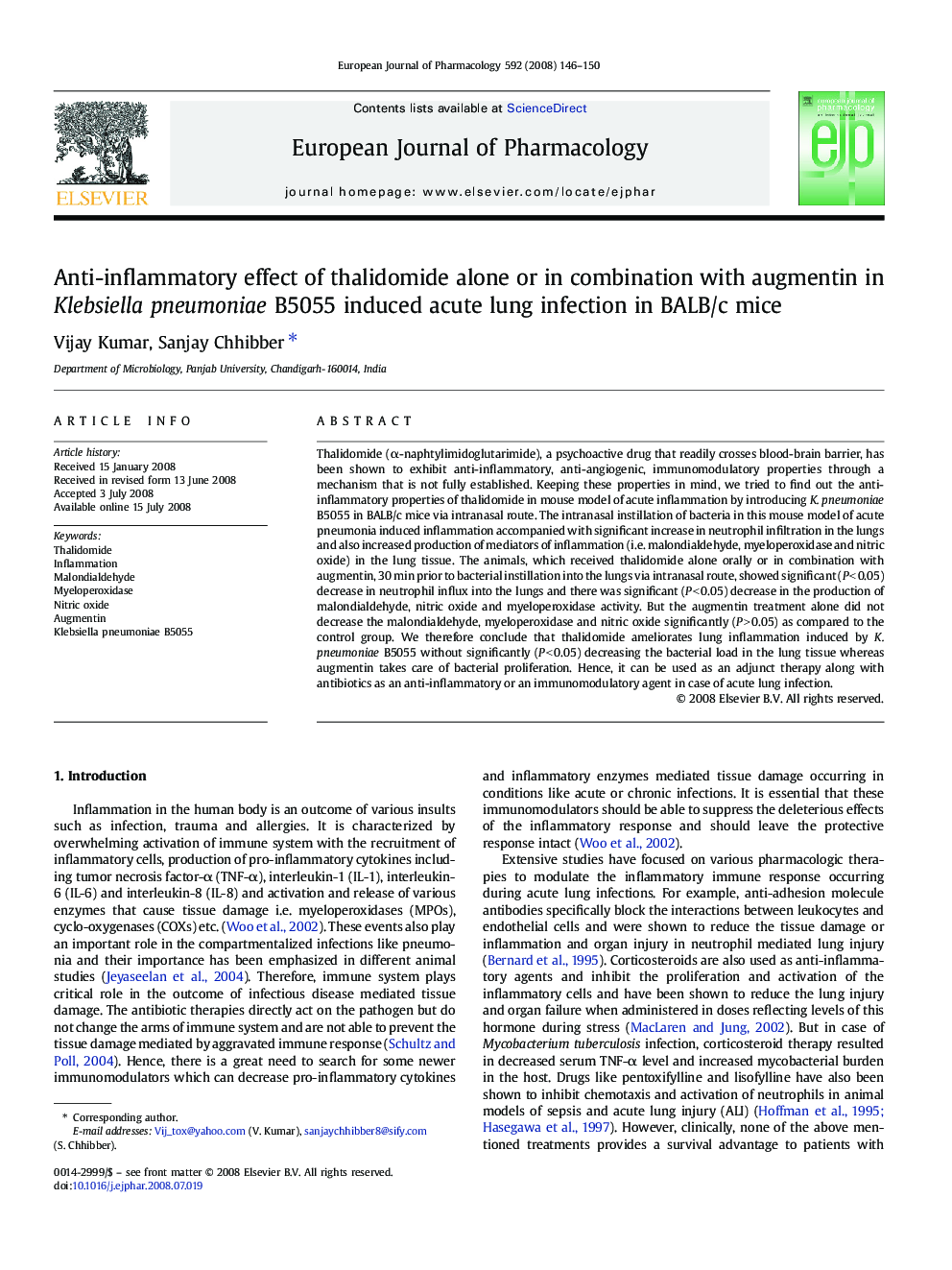| کد مقاله | کد نشریه | سال انتشار | مقاله انگلیسی | نسخه تمام متن |
|---|---|---|---|---|
| 2534876 | 1559104 | 2008 | 5 صفحه PDF | دانلود رایگان |

Thalidomide (α-naphtylimidoglutarimide), a psychoactive drug that readily crosses blood-brain barrier, has been shown to exhibit anti-inflammatory, anti-angiogenic, immunomodulatory properties through a mechanism that is not fully established. Keeping these properties in mind, we tried to find out the anti-inflammatory properties of thalidomide in mouse model of acute inflammation by introducing K. pneumoniae B5055 in BALB/c mice via intranasal route. The intranasal instillation of bacteria in this mouse model of acute pneumonia induced inflammation accompanied with significant increase in neutrophil infiltration in the lungs and also increased production of mediators of inflammation (i.e. malondialdehyde, myeloperoxidase and nitric oxide) in the lung tissue. The animals, which received thalidomide alone orally or in combination with augmentin, 30 min prior to bacterial instillation into the lungs via intranasal route, showed significant (P < 0.05) decrease in neutrophil influx into the lungs and there was significant (P < 0.05) decrease in the production of malondialdehyde, nitric oxide and myeloperoxidase activity. But the augmentin treatment alone did not decrease the malondialdehyde, myeloperoxidase and nitric oxide significantly (P > 0.05) as compared to the control group. We therefore conclude that thalidomide ameliorates lung inflammation induced by K. pneumoniae B5055 without significantly (P < 0.05) decreasing the bacterial load in the lung tissue whereas augmentin takes care of bacterial proliferation. Hence, it can be used as an adjunct therapy along with antibiotics as an anti-inflammatory or an immunomodulatory agent in case of acute lung infection.
Journal: European Journal of Pharmacology - Volume 592, Issues 1–3, 11 September 2008, Pages 146–150